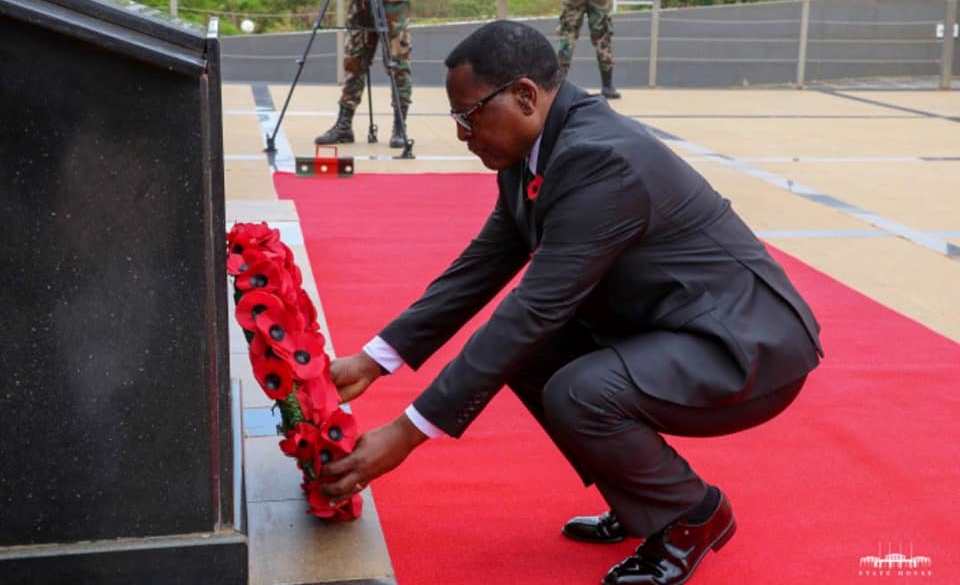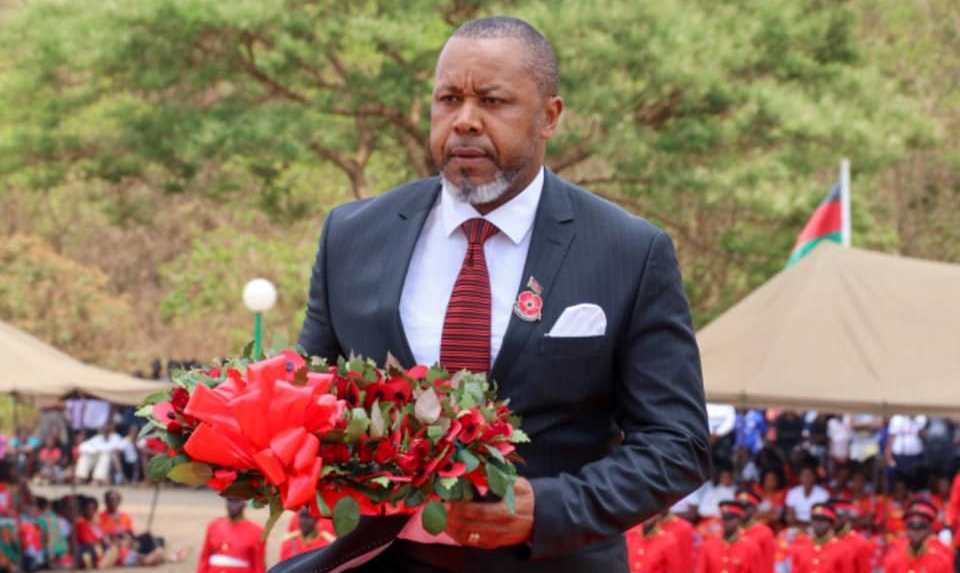Chakwera leads Remembrance Day commemoration
President Lazarus Chakwera on Sunday led Malawians in honouring Malawian and Commonwealth soldiers who fought in the two World Wars by laying wreaths at the memorial tower in Lilongwe.
Minister of Mining Albert Mbawala represented the President at the Zomba War Memorial Pillar and Minister of Youth and Sports Richard Chimwendo Banda presided over the ceremony in Mzuzu while Vice-President Saulos Chilima, Speaker of Parliament Catherine Gotani Hara and Chief Justice Rizine Mzikamanda attended the Lilongwe event alongside the President.

Remembrance Sunday, also known as Poppy Day or Memorial Day, is held on the second Sunday of November to celebrate the contribution of soldiers worldwide who died in wars and other military conflicts since the onset of World War I.
Traditionally, two minutes of silence are observed closest to November 11 at 11am in honour of the fallen soldiers.
Chakwera was the first to lay the wreath followed by Chilima while Malawi Defence Force (MDF) Commander General Vincent Nundwe and Inspector General of Police Merlyne Yolamu, who jointly laid their wreaths, came third.
In an interview monitored on Malawi Broadcasting Corporation (MBC) TV, former MDF General Henry Odillo (Retired) said currently there are 18 veteran soldiers being housed at Cobbe Barracks Memorial Home in Zomba .

He highlighted challenges such as poor housing and poor access to medication, calling on well-wishers to come forward with assistance towards the welfare of the retired soldiers.
“We have few at the memorial home but there are a lot of them scattered across the country. While we appreciate various organisations supporting the retired soldiers, they still need more support,” said Odillo.
On November 2 2022, President Chakwera inaugurated the Poppy Appeal Weak in Lilongwe where he bought the first poppy at K2 million.
He underscored the need to support the fallen heroes in appreciation of the peace the nation is enjoying today.
Poppy is the symbol of the sacrifice the soldiers made during the World Wars. They were flowers mainly grown in Europe and symbolised the blood the soldiers sacrificed for the freedom of this world.
An estimated 30 000 Malawian soldiers fought in two world wars’ battlefronts in different countries, including Ethiopia, Democratic Republic of Congo, Madagascar, Burma and Jamaica.
Currently, there are no living soldiers in Malawi who fought in World War 1 from 1914 to 1918, but some who fought in the Second World War are still alive, according to Odillo.





